
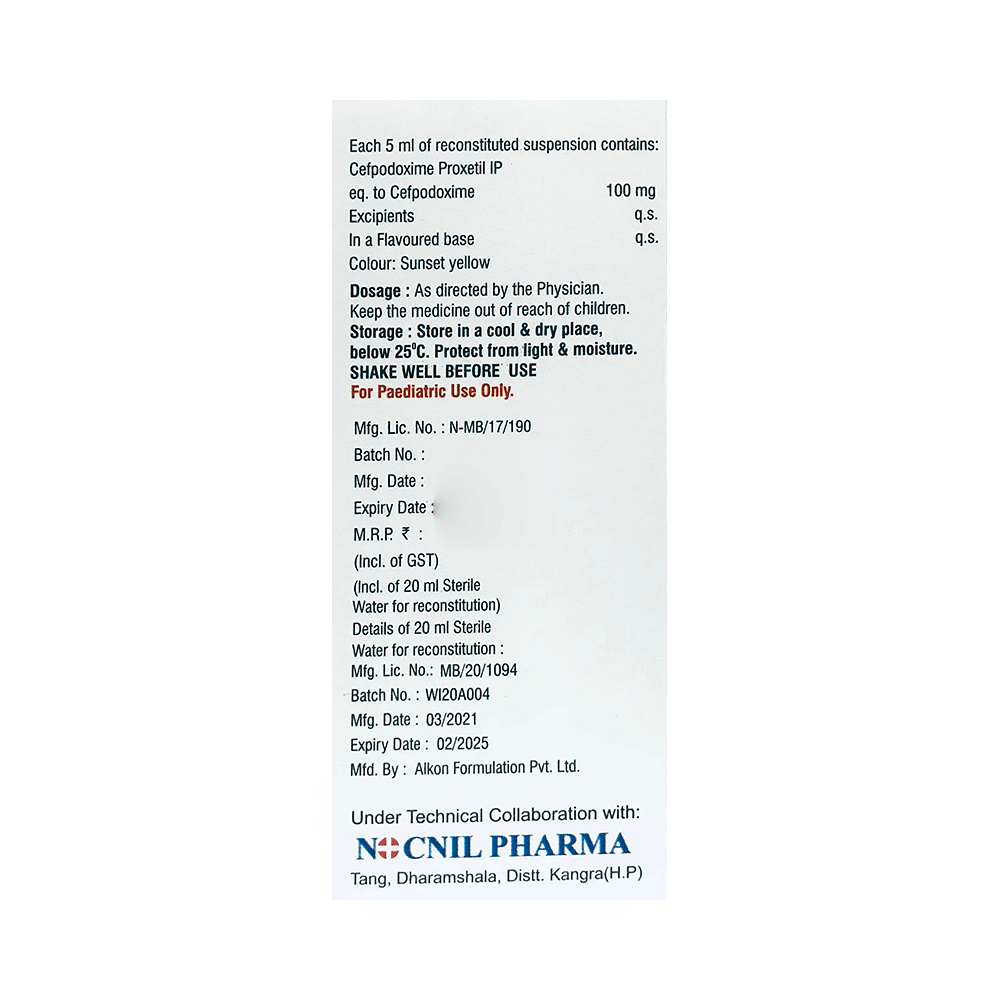
Nocsaf 100 Dry Syrup Orange
Manufacturer
Nocnil Pharma
Salt Composition
Cefpodoxime Proxetil (100mg/5ml)
Key Information
Short Description
Nocsaf 100 Dry Syrup Orange is an antibiotic medicine used to treat a wide range of bacterial infections in children, including ear, eye, nose, throat, lung, skin, gastrointestinal tract, and urinary tract infections, as well as typhoid fever.
Dosage Form
Oral Suspension
Introduction
Nocsaf 100 Dry Syrup Orange is an antibiotic medicine commonly given to children for the treatment of a wide range of bacterial infections. It is effective in treating infections targeting the ears, eyes, nose, throat, lungs, skin, gastrointestinal tract, and urinary tract. It is also used to treat typhoid fever in children and adolescents.
Directions for Use
Give this medicine with food to avoid an upset stomach. Encourage your child to drink plenty of water in case diarrhea develops as a side effect.
How it works
Nocsaf 100 Dry Syrup Orange is an antibiotic that works by preventing the formation of the bacterial protective covering (cell wall) which is essential for the survival of the bacteria. By doing so, this medicine stops the infection-causing bacteria from growing further and prevents the infection from spreading without making the bacteria resistant to further treatment.
Quick Tips
Your child must complete the entire course of antibiotics. Stopping too soon may cause the bacteria to multiply again or become resistant or cause another infection. Give this medicine with food to avoid an upset stomach. Encourage your child to drink plenty of water in case diarrhea develops as a side effect. Conditions like common cold and flu are caused by viruses. Never use this medicine for such conditions. Only give Nocsaf 100 Dry Syrup Orange to your child for their current infection. Never save medicine for future illnesses.
Related Medicines
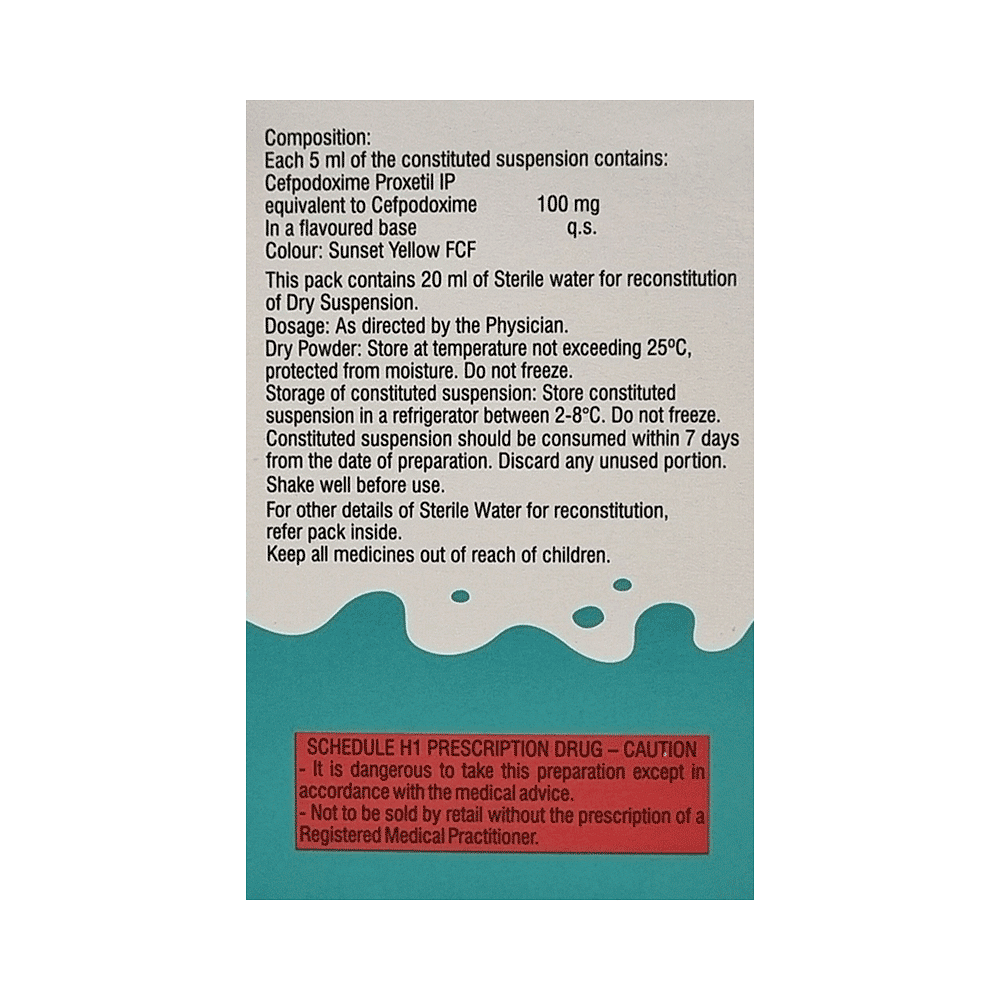
Cepodem 100 Dry Suspension
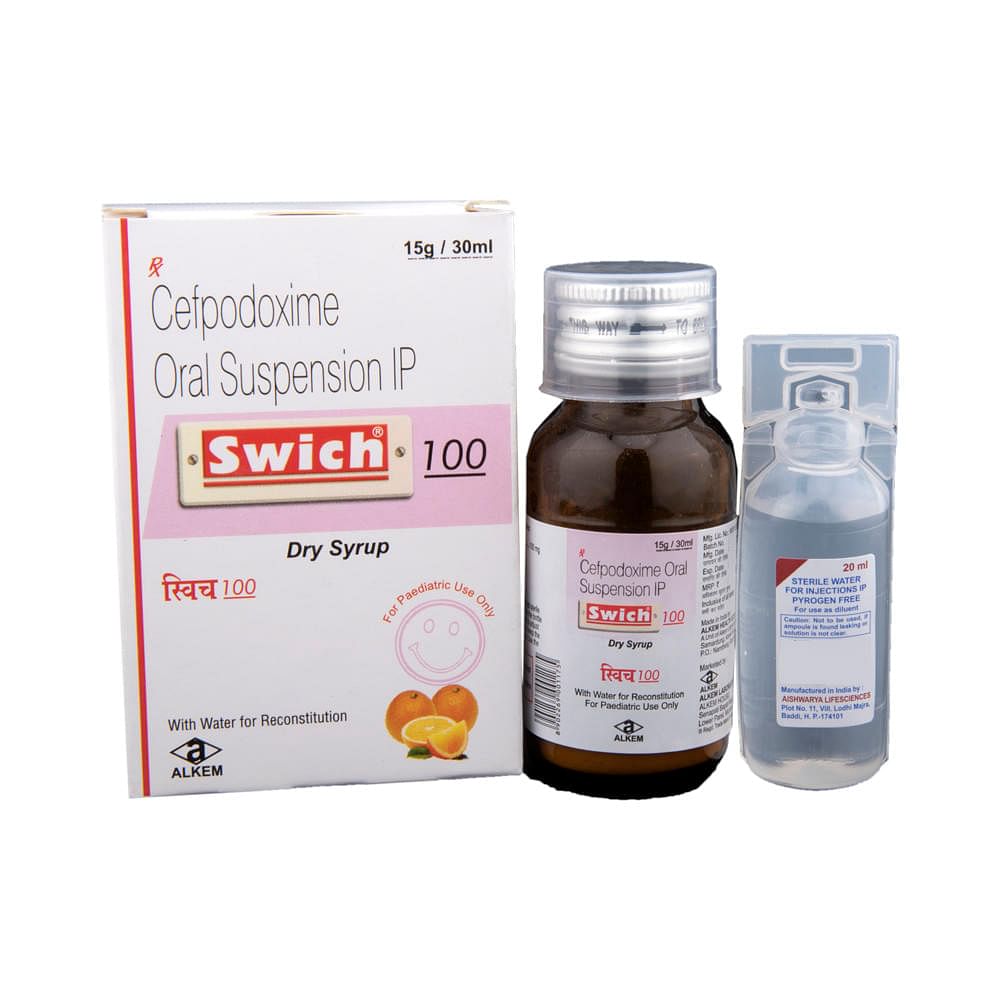
Swich 100 Dry Syrup
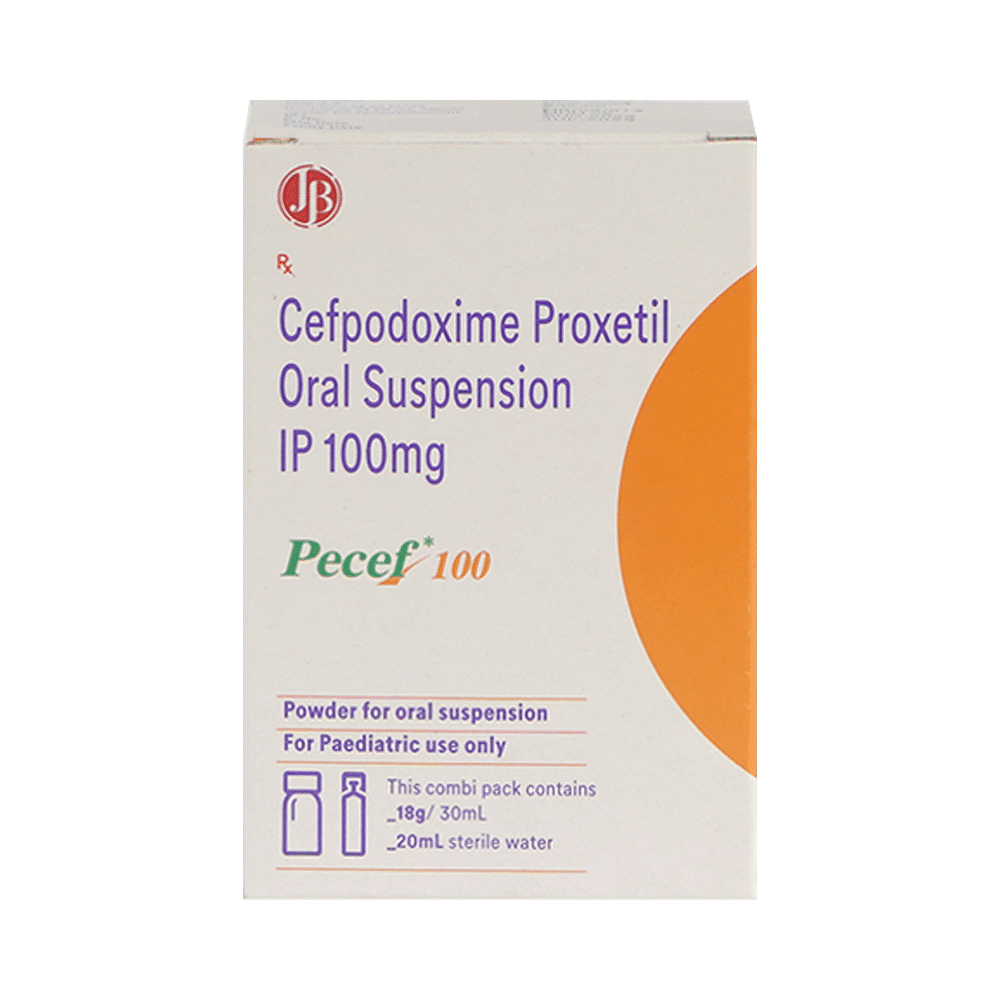
Pecef 100 Powder For Oral Suspension

Sundoxim 100 Dry Syrup Orange
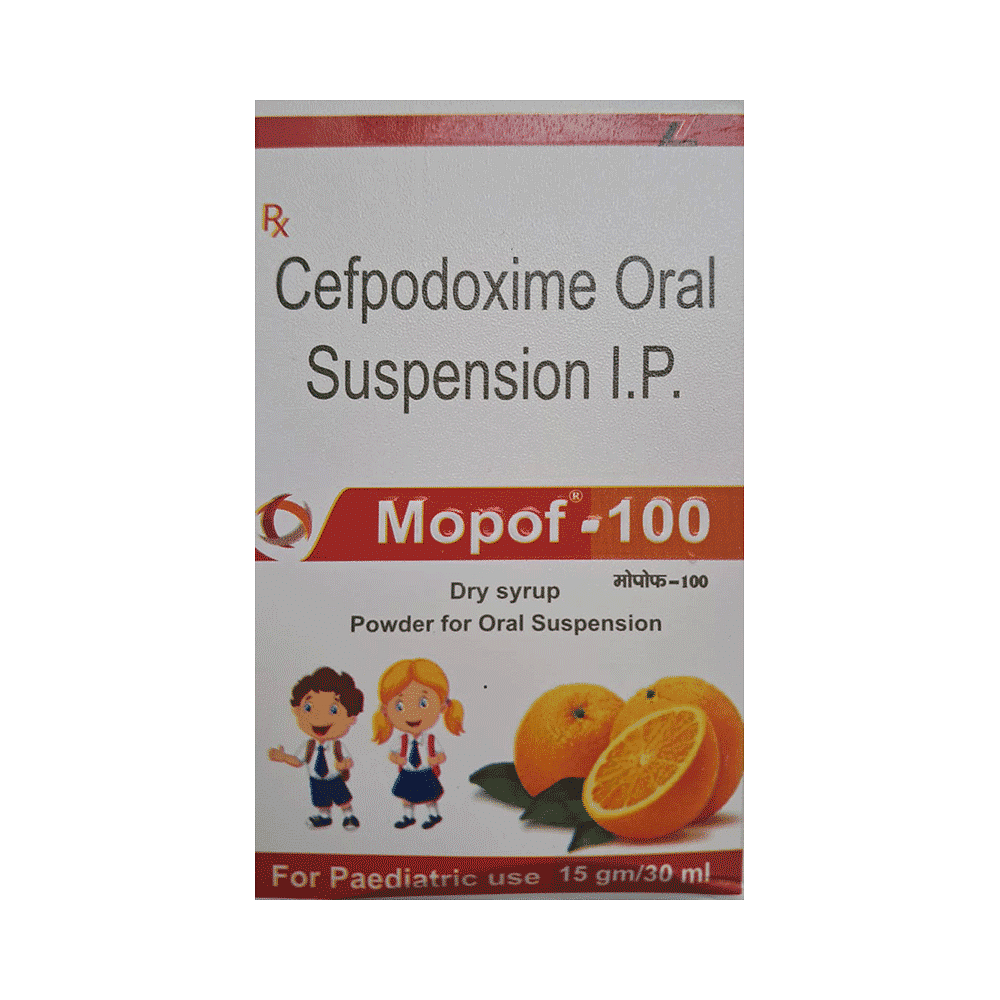
Mopof 100 Dry Syrup

Foxypod Duo 100mg Dry Syrup

Afado 100 Dry Syrup

Checkpod 100 Oral Suspension

Sofidoxim DS Oral Suspension

Cepolilly 100 Dry Syrup
Frequently asked questions
What if I accidentally give my child too much of Nocsaf 100 Dry Syrup Orange?
Giving more than the recommended dose is unlikely to cause harm. However, if you think your child may have taken too much, contact a doctor immediately.
Are there any potential serious side effects of Nocsaf 100 Dry Syrup Orange?
Serious side effects include persistent vomiting, kidney problems, allergies, diarrhea, and severe gastrointestinal infections. Contact a doctor if you suspect any of these adverse reactions.
Can I give my child other medications at the same time as Nocsaf 100 Dry Syrup Orange?
It is crucial to consult your child's doctor before administering any additional medications. This will help prevent potential interactions and ensure proper dosage.
Can I get my child vaccinated while on treatment with Nocsaf 100 Dry Syrup Orange?
Antibiotics generally don't affect vaccine ingredients or cause adverse reactions in children who have recently been vaccinated. However, it is recommended to wait until the illness resolves before administering vaccines.
What lab tests might be required for long-term treatment with Nocsaf 100 Dry Syrup Orange?
Periodic kidney function and liver function tests may be necessary during long-term use to assess your child's condition.
My child has a yellow-green discharge from their nose, is it a sign of bacterial infection?
Yellow or green mucus in the nose usually doesn't mean antibiotics are needed. It can be normal during a common cold when mucus thickens and changes color. Symptoms typically resolve within 7-10 days.
My child has a sore throat and ear infection. Can I give antibiotics?
No, antibiotics are not used for viral infections like sore throats and ear infections. These infections are often caused by viruses and don't respond to antibiotics.
Should I use antibiotics if my child has a sore throat or a virus?
No, using antibiotics in cases of viral infections is unnecessary and can lead to potential side effects. It's crucial to consult your child's doctor for guidance.
Can Nocsaf 100 Dry Syrup Orange impact the digestive system?
Some children experience stomach upset when taking antibiotics, as it can disrupt their gut flora balance. Be sure to contact a doctor if your child experiences diarrhea while on this medication.
Will using Nocsaf 100 Dry Syrup Orange lead to bacterial resistance in my child?
Yes, misuse or inappropriate use of medications can increase the risk of bacteria becoming resistant to antibiotics. This can lead to re-infection.


